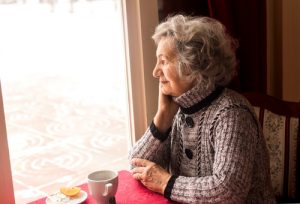Winter can seem like it lasts forever. It’s cold, icy, and all we want to do is curl up in a blanket and hibernate until spring. It can be especially treacherous for seniors, who may be alone for these cold couple of months. But we have tips to stay safe, here are six ways for seniors to stay safe in winter.

6 Ways For Seniors to Stay Safe in Winter
1. Avoid slipping on ice.
It can cause serious damage to seniors like fractures and cuts. It could even cause death if the fall is bad enough. Wearing shoes with good traction and non-skid soles is the best way to prevent falls. To avoid falling in your home, take off your shoes as soon as you return home because the snow and ice on to the soles will melt, causing slips.
2. Dress for warmth.
Cold temps can lead to frostbite or hypothermia. According to the CDC, more than half of hypothermia-related deaths are of people over the age of 65. Seniors should dress in layers, wear thick socks, a heavy coat, a hat, gloves, and a scarf. Use your scarf to cover your mouth and protect your lungs from the frigid air.
3. Be aware of winter depression.
Winter can be tough on the emotions, it’s cold and the days are short. There’s not a lot of sunshine. Seniors have even less contact with others during the cold months, and this can cause feelings of loneliness and isolation. Loved ones should try to check in as often as possible. Even a phone call can make seniors less lonely.
4. Car Safety.
Driving the winter is intimidating for anyone, but especially seniors. Their reflexes may not be as quick as they were before. If possible, seniors should get their car serviced before winter comes. Checking things like oil, tires, battery, and wipers will make the vehicle safer, and the senior feel better.
5. Prepare for power outages.
Storms lead to power outages, and with the storms we’ve had lately, it feels more likely to happen. Seniors should make sure they have easy access to flashlights spread throughout the house. They also should have lots of warm blankets to fend off the cold. Non-perishable foods will come in handy if your food in the fridge spoils.
6. Preventing Carbon Monoxide poisoning.
If you use a fireplace or a gas heater, it could lead to carbon monoxide poisoning. Make sure all the batteries in your detectors are fresh.
Read more here.

